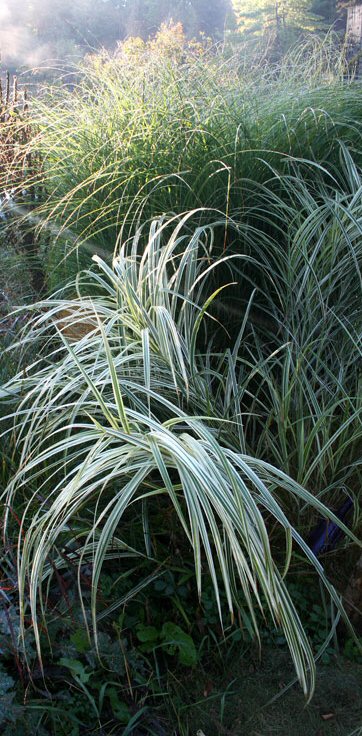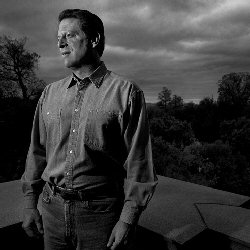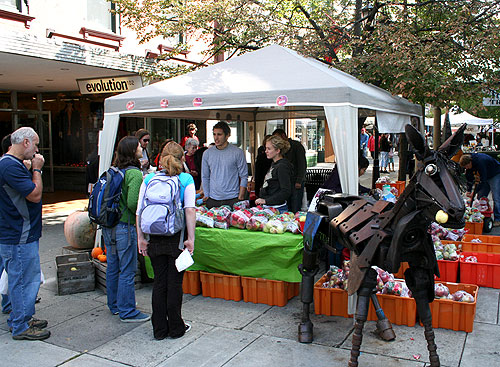
Let me share an environmental allegory with you. It’s one that I think is important, especially at this moment where many of us hang our hopes for the future on helping the banished prince return to power.
The bottomline of this story: Leaders don’t lead. They jump out in front of the parade that’s already marching ahead. The power lies in us.
The Thrill of the Grass is a short story from a collection of the same name (published in 1984) by Canadian novelist W.P. Kinsella. Kinsella’s most famous work is Shoeless Joe, which served as the basis for the movie Field of Dreams. This story has inspired me since I first read it nearly two decades ago.
The story takes place during the 1981 baseball strike. The narrator, a locksmith and fan of the game (not just the hometown team) decides one evening to drive out to the stadium. He finds a hidden door, pulls out his tools of the trade, and let’s himself in.
The field sits breathless in the orangy glow of the evening sun. I stare at the potato-coloured earth of the infield, that wide dun arc surrounded by plastic grass. As I contemplate the prickly turf, which scorches the thighs and buttocks of a sliding player as if he were being seared by hot steel, it stares back in its uniform ugliness. The seams that send routinely hit ground balls veering at tortuous angles are livid, grey as scars.
I remember the ballfields of my childhood, the outfields full of soft hummocks and brown-eyed gopher holes.
I stride down from the stands and walk out to the middle of the field. I touch the stubble that is called grass, take off my shoes, but find it is like walking on a row of toothbrushes. It was an evil day when they stripped the sod from this ballpark, cut it into yard-wide swatches, rolled it, memories and all, into great green-and-black cinnamonroll shapes, trucked it away. Nature temporarily defeated. But Nature is patient.
Later he returns to the stadium with a local business leader he invites to share his secret. He knows the businessman to be a fan who regularly sits several seats away from him on the first-base side. The locksmith, carrying a pizza box, walks to to the left-field corner where the foul line and the warning track meet, opens the box and lays down a square foot of sod.
“That’s beautiful,” [the businessman says], kneeling beside me, placing his hand, fingers spread wide, on the verdant square, leaving a print faint as a veronica.”
The locksmith cuts away the evil plastic turf and replaces it with the real thing. The two plot to return, each bringing a new friend each time on the promise that each of those friends will bring another friend each night.
They wonder what they should do with the old squares of artificial turf.
“We could mail them anonymously to baseball executives, politicians and clergymen.”
“Gentle reminders to them not to tamper with Nature.”
Night after night, an exponentially growing cadre of men sneak from their beds to take back the field.
Toward dawn, I watch the men walking away in groups, like small patrols of soldiers, carrying instead of arms, the tools and utensils which breathe life back into the arid ballfield.
Row by row, night by night, we lay the little squares of sod, moist as chocolate cake with green icing. Where did all the sod come from? I picture many men, in many parts of the city, surreptitiously cutting chunks out of their own lawns in the leafy midnight darkness, listening to the uncomprehending protests of their wives the next day — pretending to know nothing of it — pretending to have called the police to investigate.
Finally, their job is done just before the strike ends. The locksmith reflects:
What will the players think, as they straggle into the stadium and find the miracle we have created? The old-timers will raise their heads like ponies, as far away as the parking lot, when the thrill of the grass reaches their nostrils. And, as they dress, they’ll recall sprawling in the lush outfields of childhood, the grass as cool as a mother’s hand on a forehead.
Cut sod from your own lawn. Show up at the ballpark at improbable hours. Water the newly laid sod until its roots are well established. Let the thrill of the grass fill your nostrils once again.





